Why We Miss (and How Not Too) Leave a reply
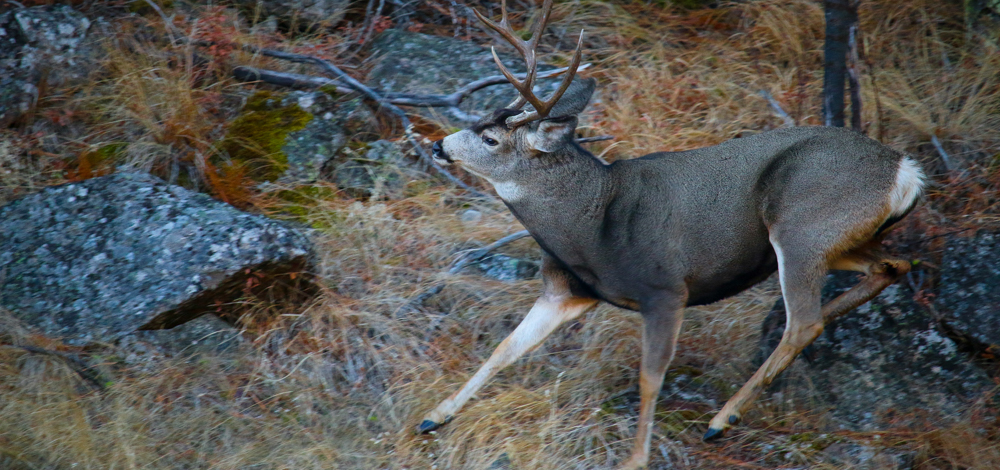
By Jason Brooks
It happens to everyone who has ever hunted. A buck or a bull steps out and presents an “easy” shot and when the report of the rifle is heard or the arrow is released the animal runs away. You missed! Simply put the bullet or arrow did not hit the target and you now have to explain to your hunting buddies-or even worse-admit to yourself that you missed.
Missing is not that bad of a thing as long as it’s a “clean miss” and the animal is unharmed. I have missed plenty and each time I re-think the shot and what went wrong. Turn the miss into a learning experience and you will miss less often and become a better hunter. But first you need to understand that there are reasons why we don’t hit where we are aiming along with how to learn from it and overcome these obstacles.
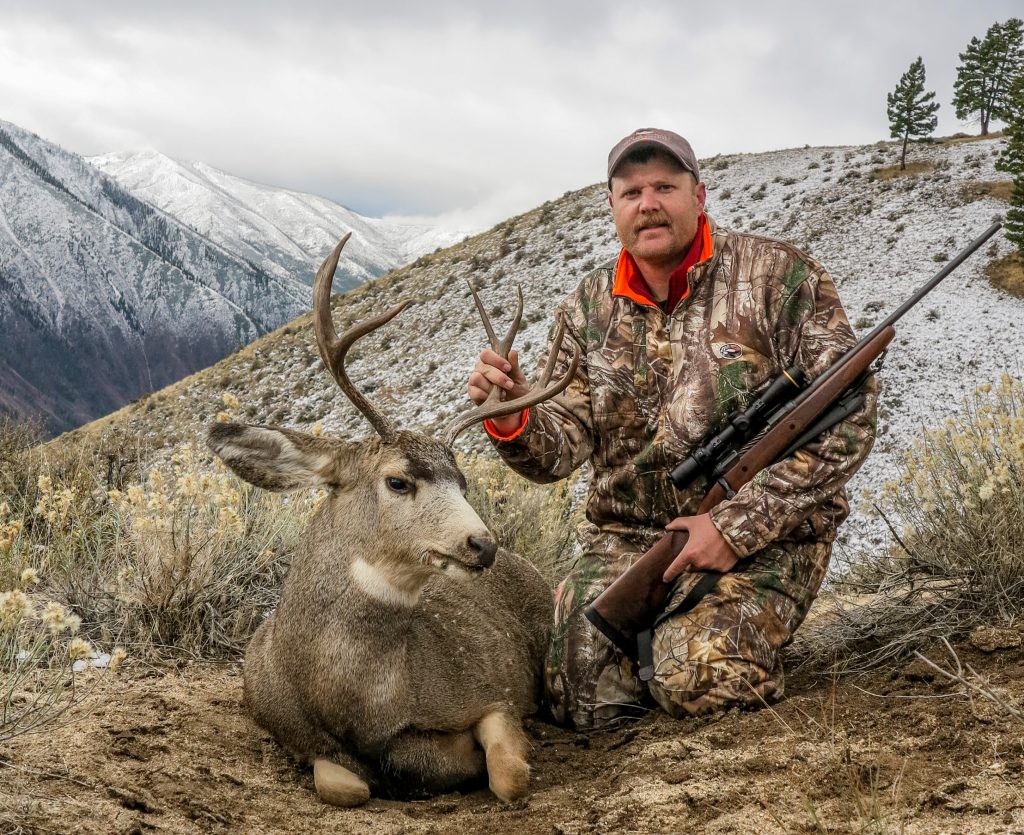
Misjudging Your Target
This is probably the most common reason why we miss. Either the animal is further away or presenting a bad angle that looks good. Maybe you don’t feel that cross breeze or the light is fading and the animal is closer than you think. Misjudging can also manifest itself as “over-thinking” when we over-compensate for the shot.
A few years ago I was in the backcountry of Idaho and found a buck that would have been my biggest one to date. It stood looking away from me while my hunting partner made his way down the opposite ridge and kept the deer’s attention. I ranged the buck at just over 300 yards and figured I had about a 5-inch drop, so I held 5 inches high and shot right over the deer. My bullet went right where I was aiming, the problem was I was aiming at the wrong place.
There are many tools for today’s hunter that can help reduce misjudgment such as a range finder, wind indicator, bullet compensation scope turrets and even an atmospheric barometer and altimeter. But it really comes down to practice, both at judging the game and at the shooting bench. With “long range” shooting becoming very popular we need to remember why we hunt and maybe closing that distance is better than compensating for the bullet drop. A few days later, one day before my hunt was over I found a small bedded buck at nearly the same yardage as the big one I missed. When I settled the crosshairs on his shoulder he dropped. That time I didn’t misjudge the shot.
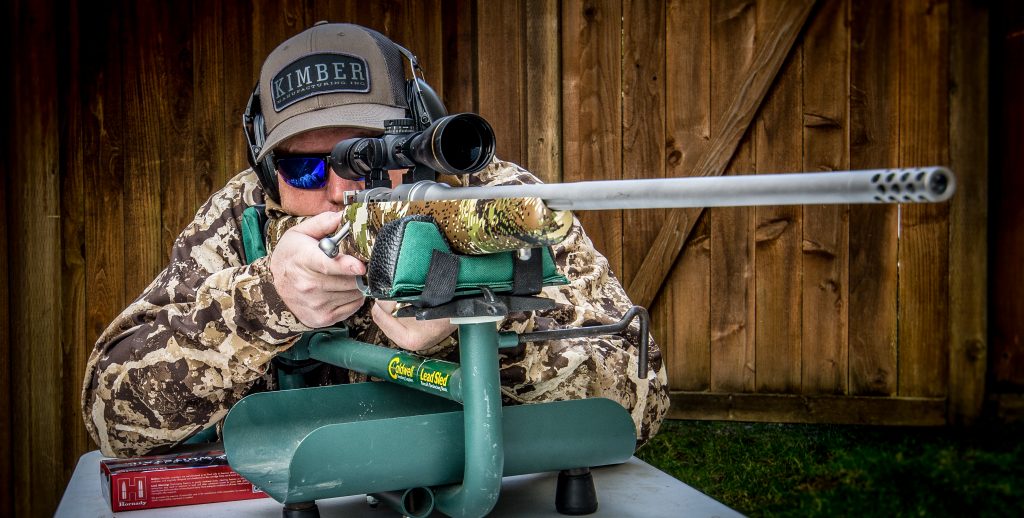
Flinching
It is human nature to avoid pain and shooting a rifle can cause some discomfort in both our shoulder and our ears. In fact, it is probably the loud “bang” that will cause you to flinch more than the actual recoil. This is because hearing is one of our defense senses and we spend all of our time in the outdoors listening for noises that might tip us off to predators like bears, wolves, or big cats. So, when the rifle fires we react to the loud noise more than the recoil, unless of course you are prone to being “scope bit”. A few drops of blood running down your cheek and that sharp pain above your eye is a reminder to your subconscious that this might hurt when you pull the trigger.
One way to overcome flinching is to wear hearing protection, even while hunting. There are plenty of noise canceling earmuffs that also have electronic amplifiers. You can talk, hike, and even hear game but when the rifle fires the loud bang is muffled. Another thing to keep you from flinching is wearing safety glasses. It still stings a bit when the scope hits the glasses but it will keep you from getting cut. If you have the time to find a rest and set up for a shot then you might also put on the safety equipment.
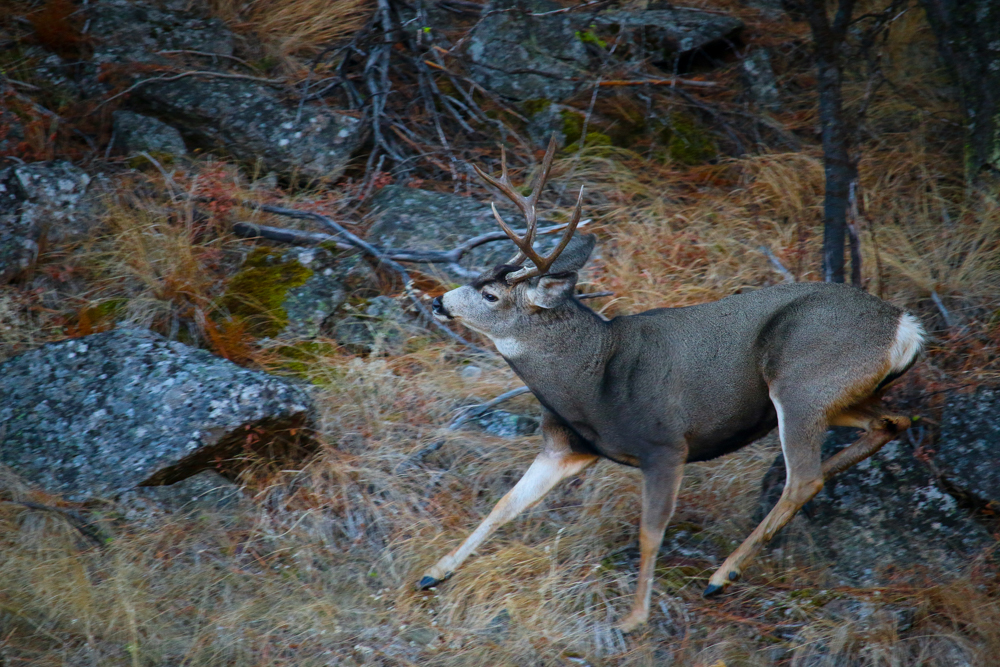
Psychological and Physiological Reactions, Otherwise Known as “Buck Fever”.
We have all gotten it, and in fact it is part of why we hunt. Whether you want to admit it or not there is a “rush” of adrenaline when it is time to make the shot count. Some people can control this easier than others and then there is the “causing effect” which is often brought on by stress. An example is when you see a small buck on opening day and decide to pass on taking that animal. You enjoy watching it for a while and then it wanders off and before you know it the last day of the season is upon you. Now that same small buck steps out and some people immediately go into “buck fever”. This is because psychologically you are thinking that this is your last chance at filling the tag. Stress occurs and you start to shake, or have a physiological reaction to the psychological stress you put on yourself. Breathing hard, shaking muscles, dizziness, and excitement. None of this is good for keeping on target. There are a few ways to overcome “buck fever” but they take time and are dependent on your own experiences.
The military and even first responders such as police and firefighters have training with specialized equipment that actually has more to do with their psychological welfare than their actual safety. A soldier and a cop might put on a ballistic vest when in reality several calibers will penetrate it but they “feel safe” and can remain calm during a stressful event. Firefighters put on special clothes and an air pack to breathe and run into a burning house, again with the psychological effect of feeling safe in a high stress event. Athletes are the same way, take for example a football player. They put on their shoulder pads and helmet and then run at full force and hit each other repeatedly and yet make a great catch or a tackle.
As a hunter you are putting yourself in a severely stressful event where you are going to shoot at an animal. Your mind begins to race, hands shake and buck fever takes over. Yet, if you condition your mind that when you put on your hunting gear, such as lacing up your boots, then you are “ready” for that moment. I hunt with a few guys who get buck fever really bad and yet I rarely get it. Yes, I get excited and feel the same adrenaline rush but years of preparing for the expected is what keeps me from shaking and getting too excited. I expect to find game, I expect to have a shot, and I expect to make that shot. If you only practice at “hoping” to find a buck or “hoping” to get a shot, then you are more likely to get buck fever.
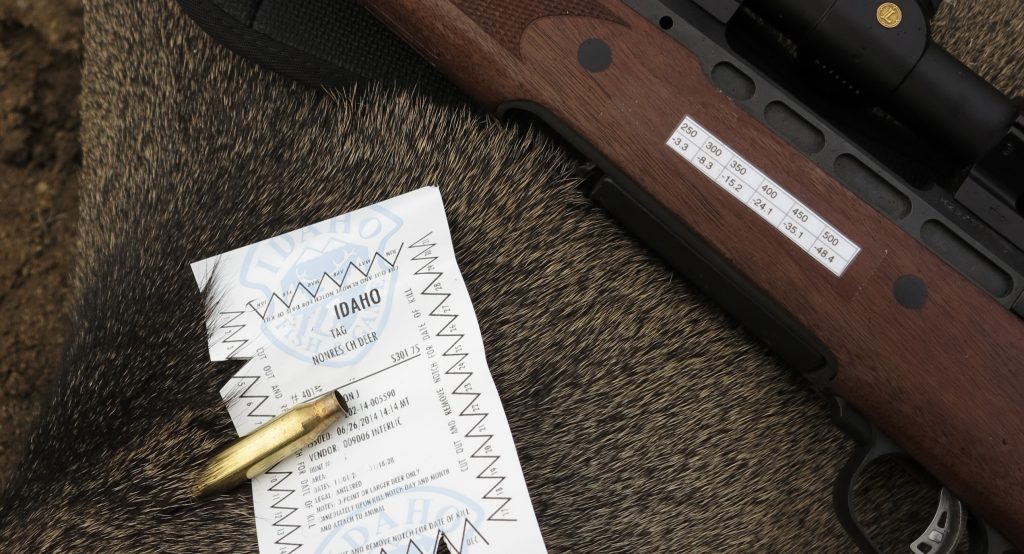
Trigger Pull
It all comes down to less than a 1/4-inch. When you finally have that bull or buck or whatever the quarry is in your sights and you start to squeeze the trigger or release. This is the very last thing you will do before you either hit the target or miss. A few years ago I was on the High Hunt in the Cascade Mountains of my home state of Washington. It was the second day of the season and a mature mule deer buck was in a small clearing 350 yards away. The rifle was very capable of that shot, and I had my son with me. He wanted to take the shot and rested the rifle across his pack. A solid rest for the 11-year old. Plenty of time and no need to rush the shot. He was not shaking and knew that he would have another chance as the hunting season was just starting. He squeezed the trigger, and nothing. He squeezed again and then looked up from the gun when it wouldn’t fire. Making sure the safety was off he pulled hard on the trigger and missed.
Be sure you practice with the rifle you plan on hunting with. This was the first mistake we made as I handed him my rifle and he was used to shooting his Thompson Center Encore with a very light trigger. My rifle was a bolt gun and the trigger was only a pound stiffer than his but that felt like a brick wall to my son. You can easily move the rifle while actually shooting it, especially if you are using a lightweight “mountain” rifle. There is a reason why bench rest competition shooters use a heavy rifle and a “hair trigger”. I don’t recommend either for hunting as safety has to come first and I really don’t like hauling a heavy gun around the mountains. Trigger pull is an easy one to overcome though, all you need to do is practice, a lot, and then even some more. Dry firing at the range is probably the best way to practice trigger pull.
You cannot “over practice” pulling the trigger and it also helps you overcome all of the other factors that contribute to missing. The more you shoot your rifle the more comfortable it becomes. You know your ballistics and can make a better judgement. Most of all it becomes a tool for your confidence and calms you down when it matters most, at the time of the shot, and you will miss less.
Jason Brooks
The Outdoor Line Field Editor

